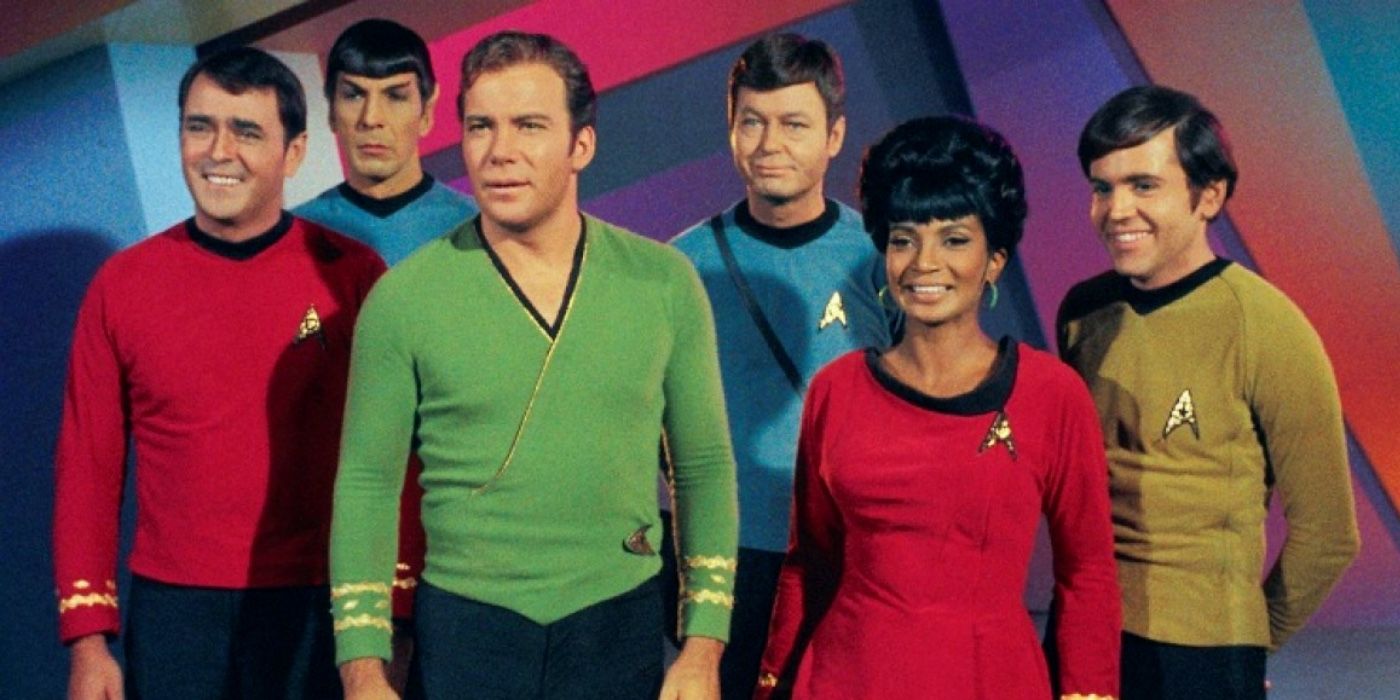When Star Trek: The Original Series debuted on NBC in 1966, the series had already survived setbacks that killed other series. The series quickly became a sensation, but the budget was too high and the ratings weren’t high enough. After battling creator Gene Roddenberry, NBC scheduled Star Trek in a graveyard timeslot for Season 3, and it was canceled. However, the show survived in syndication, and its legion of fans practically willed the franchise back into existence more than once.There are many reasons why Star Trek was canceled by NBC in 1969 beyond simple ratings. If anything, the series was troubled from the start. First, the show’s original pilot failed, but Lucille Ball of Desilu Productions agreed to give Roddenberry another shot. Second, Star Trek was an expensive series to produce despite being co-financed by NBC. Third, Art director Matt Jefferies, production designers and visual effects personnel were asked to do the impossible each week. Still, despite these setbacks, Star Trek spawned a universe of more than a dozen series, with new shows in production almost 60 years later. So, how did this misbegotten science fiction version of Wagon Train beat the odds?As mentioned, Star Trek was always a show in trouble despite quickly finding a passionate audience. Desilu was going deep into debt because of the co-financing arrangement, almost canceling the show itself. The ratings were solid, but not as high as NBC wanted them to be. This was before the days of demographics, so NBC didn’t realize they had the vaunted 18-34 audience in a stranglehold. During production of Season 2, Roddenberry knew the Sword of Damocles hung over the production. He reached out to writer Harlan Ellison to encourage other respected science fiction authors to write to NBC in order to save the show.Star Trek: Just How Old Is the United Federation of Planets?
When Star Trek: The Original Series debuted on NBC in 1966, the series had already survived setbacks that killed other series. The series quickly became a sensation, but the budget was too high and the ratings weren’t high enough. After battling creator Gene Roddenberry, NBC scheduled Star Trek in a graveyard timeslot for Season 3, and it was canceled. However, the show survived in syndication, and its legion of fans practically willed the franchise back into existence more than once.
There are many reasons why Star Trek was canceled by NBC in 1969 beyond simple ratings. If anything, the series was troubled from the start. First, the show’s original pilot failed, but Lucille Ball of Desilu Productions agreed to give Roddenberry another shot. Second, Star Trek was an expensive series to produce despite being co-financed by NBC. Third, Art director Matt Jefferies, production designers and visual effects personnel were asked to do the impossible each week. Still, despite these setbacks, Star Trek spawned a universe of more than a dozen series, with new shows in production almost 60 years later. So, how did this misbegotten science fiction version of Wagon Train beat the odds?
As mentioned, Star Trek was always a show in trouble despite quickly finding a passionate audience. Desilu was going deep into debt because of the co-financing arrangement, almost canceling the show itself. The ratings were solid, but not as high as NBC wanted them to be. This was before the days of demographics, so NBC didn’t realize they had the vaunted 18-34 audience in a stranglehold. During production of Season 2, Roddenberry knew the Sword of Damocles hung over the production. He reached out to writer Harlan Ellison to encourage other respected science fiction authors to write to NBC in order to save the show.
#Star #Trek #Original #Series #Canceled #Brought
Note:- (Not all news on the site expresses the point of view of the site, but we transmit this news automatically and translate it through programmatic technology on the site and not from a human editor. The content is auto-generated from a syndicated feed.))



